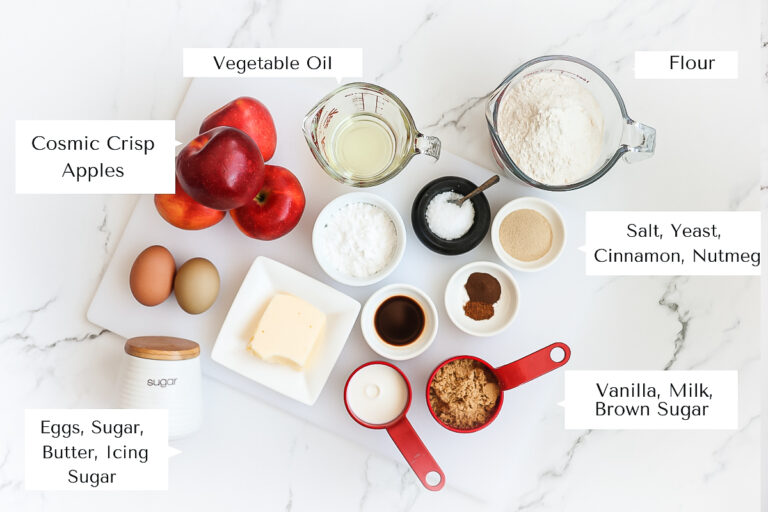Nourishing Fasting Broth Recipe: A Delicious Option
Looking for a delicious and nutritious way to break your fast? Look no further! Our broth recipe for fasting is the perfect solution. Packed with flavor and wholesome ingredients, this recipe will not only satisfy your taste buds but also keep you feeling nourished and energized throughout the day. Whether you’re following a religious fast or practicing intermittent fasting, this broth recipe is a must-try. So, let’s dive right in and explore the simple yet satisfying world of broth for fasting.
Broth Recipe for Fasting
Fasting has been practiced for centuries for various reasons, including religious, spiritual, and health purposes. During fasting, one refrains from consuming food or restricts certain types of food for a specific period. While fasting, it is important to nourish your body with essential nutrients to support overall health and well-being. One way to do this is by incorporating homemade broth into your fasting routine. In this article, we will explore the benefits of broth during fasting and provide you with a delicious and nutritious broth recipe to try.
The Benefits of Broth During Fasting
Broth is a flavorful liquid made by simmering bones, meat, vegetables, herbs, and spices in water. It is packed with essential nutrients and offers numerous benefits, particularly during fasting. Let’s take a closer look at some of the reasons why broth is an excellent addition to your fasting routine:
- Hydration: Staying hydrated is crucial during fasting, and broth can help you meet your fluid needs. It provides a delicious way to replenish your body with fluids, especially if you are fasting from water as well.
- Nutrient-dense: Broth is rich in essential minerals, such as calcium, magnesium, phosphorus, and potassium, which are important for various bodily functions. It also contains gelatin, collagen, and amino acids that promote joint health, support digestion, and enhance skin elasticity.
- Easy to digest: When you consume broth, your body can easily break down and absorb the nutrients, making it gentle on the digestive system. This is especially beneficial if you are on an extended fast and your digestive system is in a resting state.
- Satiating: Broth is a satisfying and comforting food that can help reduce hunger pangs during fasting. It provides a sense of fullness and nourishment, making it easier to stick to your fasting goals.
- Immune support: The ingredients in broth, such as garlic, ginger, and turmeric, have immune-boosting properties. Consuming broth during fasting can help support your immune system and keep you healthy.
A Nutritious Broth Recipe for Fasting
Now that we understand the benefits of broth during fasting, let’s dive into a simple and nutritious broth recipe that you can easily prepare at home. This recipe utilizes a combination of bones, vegetables, and aromatic herbs to create a flavorful and nourishing broth.
Ingredients:
- 2-3 pounds of bones (chicken, beef, or fish)
- 1 onion, roughly chopped
- 2 carrots, roughly chopped
- 2 celery stalks, roughly chopped
- 3 cloves of garlic, crushed
- A handful of fresh parsley
- 1 teaspoon of whole peppercorns
- 1 tablespoon of apple cider vinegar (optional, helps extract minerals from the bones)
- Water (enough to cover the ingredients)
Instructions:
- Roasting the bones: If using beef or chicken bones, preheat your oven to 400°F (200°C). Place the bones on a baking sheet and roast them for about 30 minutes until they turn golden brown. This step enhances the flavor of the broth.
- Preparing the broth: In a large pot, add the roasted bones, onion, carrots, celery, garlic, parsley, peppercorns, and apple cider vinegar (if using).
- Add water: Pour enough water to cover all the ingredients in the pot. It’s important to add enough water to ensure the broth is flavorful and rich in nutrients.
- Bring to a boil: Place the pot over high heat and bring it to a boil. Once boiling, reduce the heat to low and let it simmer for at least 4-6 hours. Simmering for a longer period will extract more nutrients from the bones and vegetables.
- Skim the impurities: As the broth simmers, impurities and foam may rise to the surface. Skim off these impurities using a spoon or a strainer to ensure a clear and clean broth.
- Strain the broth: Once the broth is done simmering, turn off the heat and let it cool slightly. Strain the broth through a fine-mesh strainer or cheesecloth into a large bowl or containers. Discard the solids.
- Cool and store: Allow the broth to cool completely before refrigerating or freezing it. Store the broth in airtight containers or ice cube trays for convenient portioning.
Once the broth is ready, you can consume it as is or use it as a base for other dishes. It will add depth of flavor and nutritional value to soups, stews, and sauces.
Tips for Enhancing Your Broth
To further elevate the taste and nutritional content of your broth, consider incorporating the following ingredients or techniques:
- Herbs and spices: Experiment with different herbs and spices such as thyme, rosemary, bay leaves, turmeric, or ginger to add more flavor and health benefits to your broth.
- Variety of bones: Combine different types of bones like chicken, beef, fish, or even lamb to create a more complex and diverse flavor profile.
- Veggies and scraps: Don’t let your vegetable scraps go to waste. Add onion peels, carrot tops, celery leaves, or any other vegetable remnants to enhance the nutritional value of your broth.
- Slow cooker or Instant Pot: If you prefer a hands-off approach, you can make broth using a slow cooker or an Instant Pot. These appliances allow for longer simmering times and can extract even more nutrients from the ingredients.
Remember, the key to a flavorful broth is using quality ingredients and allowing the broth to simmer for an extended period.
Incorporating Broth into Your Fasting Routine
Now that you have a delicious broth recipe, let’s explore some ways to incorporate it into your fasting routine:
- Intermittent fasting: If you are following an intermittent fasting pattern, you can consume a cup of broth during your fasting window. It will provide necessary hydration, essential nutrients, and help curb hunger.
- Extended fasting: For longer fasting periods, such as multi-day fasts, you can consume broth as a nourishing and comforting addition. Sip on warm broth throughout the day to stay hydrated and replenish your body with essential nutrients.
- Breaking the fast: Broth can also be consumed as a light meal to break your fast. It is gentle on the digestive system and can help ease you back into eating without causing discomfort.
Remember to listen to your body and make adjustments based on your individual needs and preferences. If you have any underlying health conditions or concerns, it’s always best to consult with a healthcare professional before making significant changes to your fasting routine.
Adding homemade broth to your fasting routine can provide a wide range of health benefits. Not only does it offer essential nutrients and hydration, but it also supports digestion, joint health, and overall well-being. By following the simple recipe provided and incorporating broth into your fasting routine, you can nourish your body while enjoying a comforting and delicious beverage.
Bulletproof Bone Broth: Quick Recipe for After Fasting
Frequently Asked Questions
What is a broth recipe for fasting?
A broth recipe for fasting is a type of liquid-based dish made by simmering vegetables, herbs, and spices in water. It is commonly consumed during fasting periods as a source of hydration and nourishment.
What are the benefits of consuming broth during fasting?
Consuming broth during fasting can provide several benefits. It helps to keep the body hydrated, replenishes essential electrolytes, and provides a source of vitamins and minerals. Additionally, broth can help reduce hunger pangs and provide a sense of satiety during fasting.
How can I make a simple broth recipe for fasting?
To make a simple broth recipe for fasting, you can start by heating water in a pot. Then, add various vegetables like carrots, celery, onions, and garlic. You can also add herbs and spices such as bay leaves, thyme, and black pepper for added flavor. Simmer the mixture for a few hours until the flavors are infused. Strain the broth and it is ready to be consumed.
Can I customize my broth recipe for fasting?
Yes, you can customize your broth recipe for fasting based on your preferences and dietary restrictions. You can add additional vegetables like mushrooms, kale, or spinach for extra nutrients. You can also adjust the seasoning by adding salt, turmeric, or ginger for a different flavor profile.
Can I store the broth for later use?
Yes, you can store the broth for later use. Once the broth has cooled down, you can transfer it to airtight containers or ice cube trays and refrigerate or freeze it. It can be stored for a few days in the refrigerator or for several months in the freezer. Just make sure to thaw and reheat it properly before consumption.
Final Thoughts
A broth recipe for fasting provides nourishment and comfort during the fasting period. The rich flavors and nutrients in the broth help to sustain energy levels and provide essential vitamins and minerals. By simmering a combination of vegetables, herbs, and spices in a homemade broth, you can create a flavorful and satisfying meal option. Adding ingredients like ginger, turmeric, and garlic can provide additional health benefits. Whether you’re following a religious fast or incorporating intermittent fasting into your routine, a homemade broth is an ideal choice to support your fasting goals. Try this broth recipe for fasting as a nourishing option during your fasting period.




